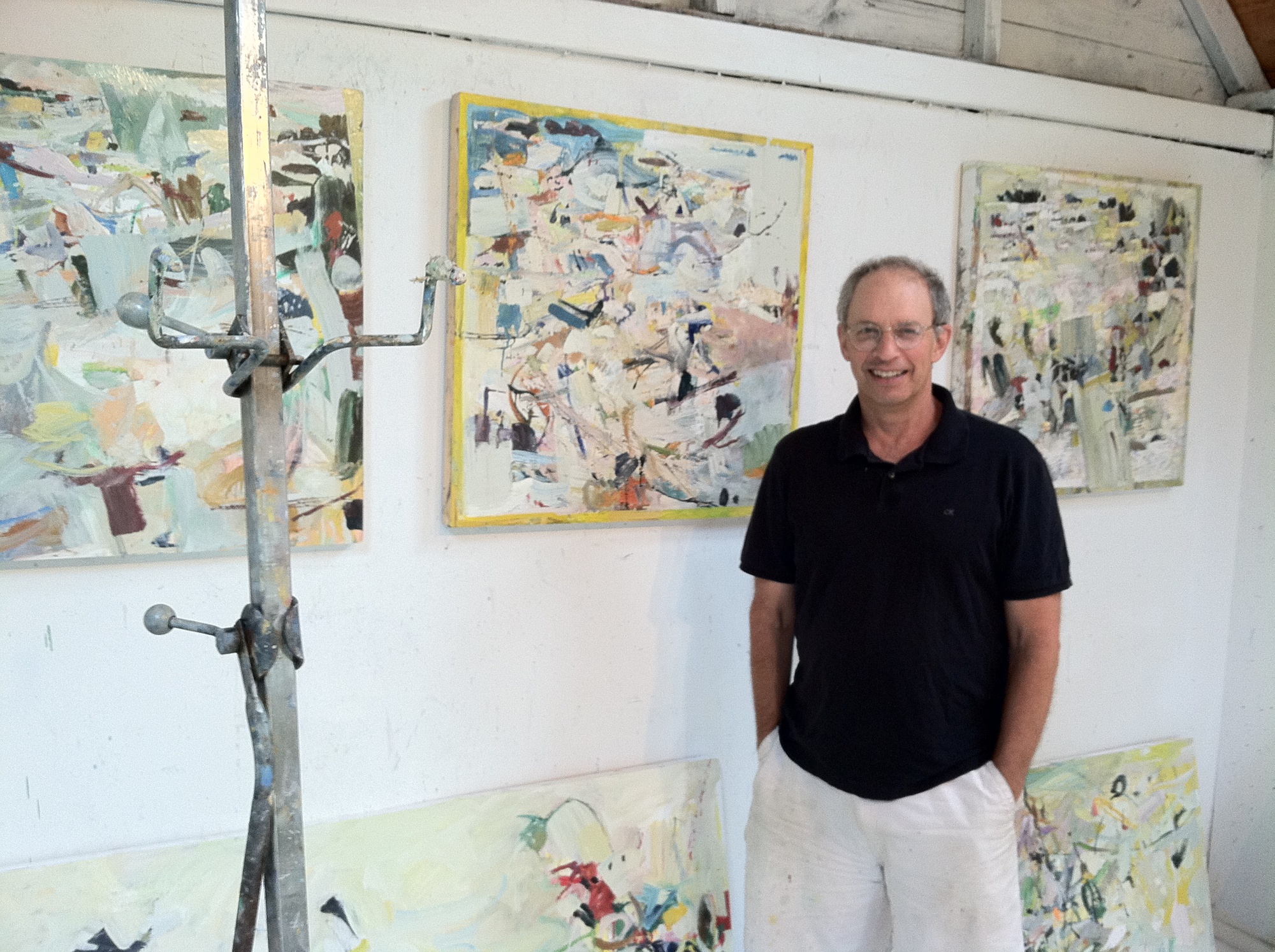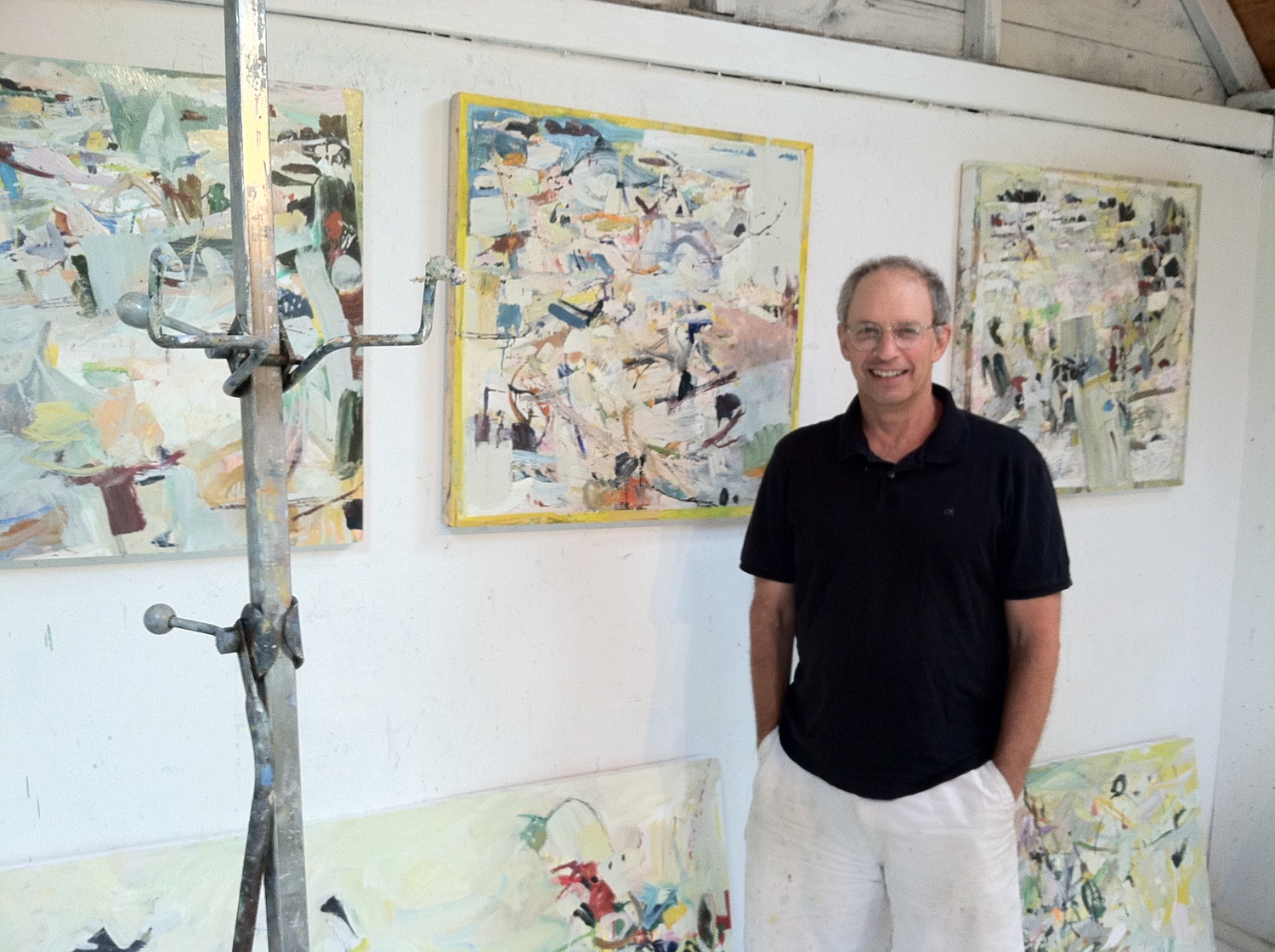
News
Summers Will Not Finish Semester of Teaching as Harvard Investigates Epstein Ties

News
Harvard College Students Report Favoring Divestment from Israel in HUA Survey

News
‘He Should Resign’: Harvard Undergrads Take Hard Line Against Summers Over Epstein Scandal

News
Harvard To Launch New Investigation Into Epstein’s Ties to Summers, Other University Affiliates

News
Harvard Students To Vote on Divestment From Israel in Inaugural HUA Election Survey
Jon Imber Remembered as Attentive Teacher, Energetic Artist

UPDATED: April 30, 2014, at 12:20 a.m.
Jon Imber, an artist who taught a figure drawing course at Harvard for over 25 years and whose abstract expressionist works gained critical success, died last Thursday due to complications from ALS. He was 63.
Colleagues remember Imber for his energy as an artist, his attentiveness as a teacher, and his determination to continue to paint despite his diagnosis.
From 1986 to 2012, Imber worked as an instructor at the Office for the Arts at Harvard, leading a weekly course at Currier House for members of the Harvard community.

OFA Director of Programs Cathleen D. McCormick, who hired Imber after taking one of his classes at the School of the Museum of Fine Arts in Boston, characterized his studio as both rigorous and welcoming. She said that Imber would often incorporate art history into his teaching, along with a good sense of humor.
“[He was] very committed to his students, was inspired by his students,” she said, adding that he was fascinated by the work produced by his students at Harvard. “I always felt that we were lucky to have him here at Harvard, because he could be teaching anywhere, he could be teaching at any art school.”
Heddi Siebel, one of Imber’s former colleagues, began teaching the course at Currier House this semester, and said that his instruction touched on life as well as the arts.
“He taught me more than I would have ever thought about how to live bravely and die gracefully,” Siebel wrote in an email.
University President Drew G. Faust similarly praised Imber’s teaching in a letter to him this January, while he was on leave due to illness.
“You encouraged hundreds of students to challenge themselves in the Currier studio and elsewhere, bringing to your teaching the same dedication and rigor that is evident in your work,” Faust wrote in the letter, which was provided by McCormick. “The arts at Harvard are stronger for your steadfast effort.”
Imber’s impact extends beyond his students to the larger Currier House community, according to Currier House Administrator Patricia G. Pepper. She said that a range of Currier affiliates, from students to dining hall workers, took the course.
“He was in our senior common room, so he and his wife, Jill, and their son Gabe kind of grew up here,” Pepper said. “They became a part of the Currier House community.”
Pepper said that Imber enjoyed having long conversations with students in the House dining hall, and often brought his own art installations to Currier to give back to the community.
Imber’s colleagues said the artist insisted on continuing to teach and create even after his diagnosis.
“I can hear him now, ‘Yup just wanna keep working,’” Pepper said, adding that when his illness prevented him from using his hands, he continued painting by holding a paintbrush between his teeth.
Siebel wrote that the portraits Imber made while ill were “passionate” and “heart-stoppingly intimate.”
“Ironically [the paintings] are lively and full of movement—embodying the very mobility the ALS took away from him,” she wrote.
A documentary about Imber’s response to ALS will be screened this Saturday at the Somerville Theatre. Imber’s work is currently on display at the Danforth Art Museum in an installation that will end with a memorial service on May 18.
—Staff writer Ivan B. K. Levingston can be reached at Ivan.Levingston@thecrimson.com. Follow him on Twitter @IvanLevingston.
This article has been revised to reflect the following correction:
CORRECTION: April 30, 2014
An earlier version of this article incorrectly stated Heddi Siebel's relationship with Imber. In fact, she was a colleague of Imber's at Harvard.
Want to keep up with breaking news? Subscribe to our email newsletter.
